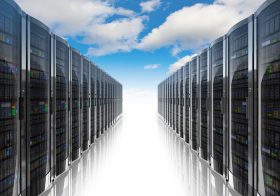Oracle Sees Automation as Key to Cloud Future
Larry Ellison, the colorful co-founder, CTO, and executive chairman of Oracle (NYSE: ORCL), took to his virtual soapbox on July 8 to flog the company’s latest gambit in the cloud wars.
Citing year-over-year growth of 140% for Oracle’s Gen 2 public cloud service last quarter, Ellison claimed new datacenter options for the environment’s autonomous services. Now, as part of its Cloud@Customer solution, Oracle’s Autonomous Database can run in a customer's data center on the vendor’s Exadata machinery (also upgraded with Intel persistent memory components and support for RDMA over Converged Ethernet — RoCE).
Related services, including Oracle Autonomous Linux and Oracle Autonomous Data Guard, also can run behind customer firewalls. Oracle still manages everything via its Gen 2 cloud service, but a secure tunnel from cloud to customer means data never leaves the user premises.
Additionally, Oracle has bundled all of its applications, platform services, and autonomous solutions into a single-tenant, behind-the-firewall service branded as a Dedicated Region. For a “reasonable” $500,000 a month, Ellison says a customer can have all the benefits of a public cloud without sending any data out of bounds.
Oracle Aims Marketing Artillery at AWS
Oracle will outbuild AWS. Ellison said Oracle has just as many strategic regional centers in its own worldwide Gen 2 cloud network as AWS has — 24. By this time next year, Oracle plans to have 36.
Customers are leaving AWS for Oracle. Ellison claimed performance and cost savings are attracting customers such as digital voice provider 8X8 away from AWS. That’s because Oracle runs faster and only charges for resources used, Ellison said.
Oracle’s Dedicated Regions offer more functions than AWS Outposts. Ellison claimed AWS does not bring all of its services in a seamless bundle to customer data centers, with one management console.
Oracle is more secure than AWS. Since autonomous services don’t require human interaction, they are more secure than other cloud offerings, Ellison said. He claimed Amazon lost data on 100 million Capital One customers last year because their databases require human IT support. “If you eliminate human labor, you eliminate human error,” Ellison said.
Autonomy Will Rule Oracle’s Future
If a bit fraught, Ellison’s claims for Oracle cloud services are thoroughly understandable. Suffering ongoing financial criticism, and in the wake of pandemic sales delays, the company has banked on its cloud- and AI-based autonomous services to push it forward.
“The Autonomous Database is without question our most significant database release and will absolutely drive revenue acceleration going forward as it grows,” said Oracle CEO
Safra A. Catz on the company’s Q4 2020 earnings call June 16.
So far, the pitch for human-free, error-free performance, lower cost, and “pay only for what you use” pricing seems to be working. Perhaps not as aggressively as Ellison claimed this week, enterprises are turning to Oracle as an add-on or alternative, not just to AWS but to cloud-based Enterprise Resource Planning (ERP) services from market leaders like SAP (NYSE: SAP).
Still, Oracle won't gain the summit it seeks anytime soon. Interest in autonomous systems is established, spurring competition for Oracle's wares. IBM (NYSE: IBM) in particular is committed to bringing artificial intelligence to hybrid cloud solutions. Larry Ellison may help find a cure for COVID-19 before AWS, Microsoft (Nasdaq: MSFT), and other cloud titans, entrenched and ahead of Oracle in many enterprises, cede space willingly.





